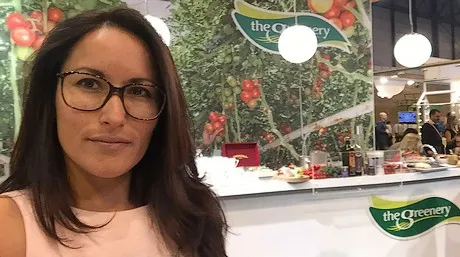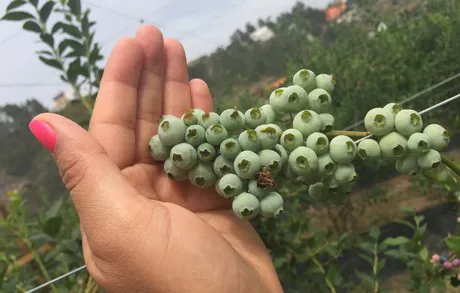
This Colombian was introduced to the fruit and vegetable sector about ten years ago. "In the first few years, I worked in the conventional trade sector at The Greenery. I have now been Purchasing Manager for organic fruit at Naturelle for three years", says Karina. "The biggest difference compared to the conventional trade is the mentality. The people trading organic products are more aware of, and involved in, health, purity and nature."
Karina sees a growth in the organic sector. "There is a general growth trend in the organic sector. In fruit it is, for example, clearly visible in avocados, blueberries and citrus. In conventional trade, you do find ample volumes in must countries. This is not the case with organic products. Fortunately, more and more growers are switching to organic. A result of this is the continuing drop in price. Since the volumes of organic products are increasing, and the sector is becoming more professional, prices are falling to an acceptable level. This makes organic products more accessible to consumers. I estimate that there is still an average difference in price of 20-25%. By making it easier for consumers to buy organic, makes it possible for organic products to better compete with the conventional sector in the future. This is especially noticeable in the fruit sector with a fast growing product. In one instance, this meant the organic product was cheaper than its conventional counterpart. Recently, for example, one of our client's organic blueberries were less expensive due to a promotion. At such times, consumers are more likely to buy organic."

Uncertainty
To keep an eye on this and plan everything, Karina contacts her suppliers with plenty of time to spare. "I contact suppliers months in advance to find out how big they think production will be, and what the various possibilities are. We inform the various production sectors. This enables them to go to Plan B or even C, if needs be. There is never a 100% guarantee that you will get the product and/or volume that you want." She admits that having a good relationship with producers is very important. "Fortunately, negotiation, not just money, remains an aspect of trading."
Organic
She says it is difficult to predict how the organic market will look in the next ten years. "I do think organic will become more standard. Now it is still seen as a trend, and not everyone knows, recognises and buys it. In ten years, organic will be seen as the new conventional."
Proud of Colombia
Karina finds the fruit and vegetable trade interesting. "I have seen various developments over the last decade. Supermarkets have more demands, consumers want to know where products come from, growers are more professional, and supermarkets give them space on their shelves. An increasing number of consumers recognise and appreciate organic products. In this way, shops and supermarkets are forced to focus their attention on organic products." Karina hails from Colombia but she admits that she never thought "her" country would become such a big player in the fruit and vegetable sector. "It is huge when you see how much avocado, pineapple, ginger and other kinds of fruit are grown in Colombia. They also have a good climate for growing fruit year-round."
Karina Diago
Product Manager Naturelle
2 Koopliedenweg
2991 LN Barendrecht
T +31 (0)180 657 213
M +31 (0)610 305 982
F +31 (0)180 657 220
Skype: karina.diago
K.Diago@thegreenery.com
www.naturallynaturelle.com
twitter.com/naturelletweets
